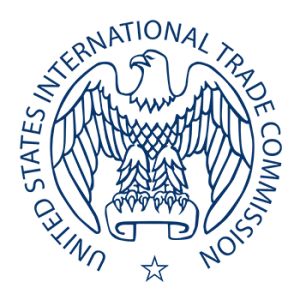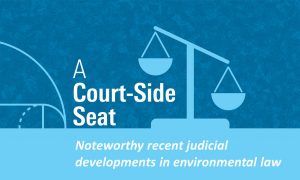This week’s round-up features how industries tangentially related to the housing market could be affected by its downturn, how the Biden Administration’s plans to invest IIJA funds, cybersecurity considerations for commercial property owners, and more.
Real Estate & Construction News Round-Up (10/05/22) – Hurricane Ian, the Inflation Reduction Act, and European Real Estate
This week’s round-up features Hurricane Ian’s effect on the construction labor pool, the Inflation Reduction Act’s projected impact on the real estate and construction industry, Europe’s real estate market, and more.
Safeguarding the U.S. Construction Industry from Unfair Competition Abroad
 In April 2015, the U.S. International Trade Commission (ITC) issued an exclusion order prohibiting the importation of certain foreign-made crawler cranes into the United States for a period of at least 10 years. That order was the result of a 20-month investigation by the ITC, initiated by a Wisconsin-based crane manufacturer based on allegations of patent infringement and trade secret misappropriation by a China-based company. Defined by powerful injunctive remedies, unique rules, and a lightning-fast docket, the ITC can help protect American industry from unfair acts in the importation of articles into the United States. This post explores the traits that make the ITC an attractive venue for potential complainants.
In April 2015, the U.S. International Trade Commission (ITC) issued an exclusion order prohibiting the importation of certain foreign-made crawler cranes into the United States for a period of at least 10 years. That order was the result of a 20-month investigation by the ITC, initiated by a Wisconsin-based crane manufacturer based on allegations of patent infringement and trade secret misappropriation by a China-based company. Defined by powerful injunctive remedies, unique rules, and a lightning-fast docket, the ITC can help protect American industry from unfair acts in the importation of articles into the United States. This post explores the traits that make the ITC an attractive venue for potential complainants.
Real Estate & Construction News Round-Up (09/28/22) – Virtual Property, ESG Reporting, and Economic Sanctions
This week’s round-up features virtual land marketplaces, proposed sanctions from the European Commission against Russia, ESG reporting and transparency in the real estate industry, and more.
A Court-Side Seat: Clean Air, Clean Water, Citizen Suits and the Summer of 2022
This is a selection of significant environmental and regulatory law cases decided by the federal courts after the Supreme Court’s 2021 Term concluded.
Connection Corner: Chris Love of Capital City Real Estate
 The Real Estate and Construction industry may be huge, but ultimately, as with all industries, it comes down to the people who help make it all come together. From time to time, we like to profile some of those people.
The Real Estate and Construction industry may be huge, but ultimately, as with all industries, it comes down to the people who help make it all come together. From time to time, we like to profile some of those people.
Washington, D.C.-native Chris Love has been involved in multifamily real estate pretty much from the moment he departed Virginia Tech’s campus, degree in hand, back in 2007. “At the time, I wanted to go into development,” he says, but with the overheated housing market already experiencing the signs of its impending collapse, no developers were hiring. Undeterred, Chris looked toward brokerage, joining First Capital Realty in Bethesda, Md., where he received his first real-world experience valuing apartments and learning “what made apartments tick.”
Blue Gold: Critical Water for Critical Energy Materials
 As demand increases for low-carbon technologies to power the energy transition, the acquisition of critical materials—so-called given their integral role in the transition of energy activities—is becoming increasingly important. As described in our previous post, such critical materials include rare earth elements (REE), lithium, nickel and platinum group metals. In short, the transition endeavors to reduce use of one non-renewable resource—fossil fuel—by significantly ramping up our use of other non-renewable resources. While critical material discussions have largely centered on the availability and economic extractability of the minerals themselves, Pillsbury is also counseling on the other resources needed to bring the materials to market at the scales required for our decarbonization goals.
As demand increases for low-carbon technologies to power the energy transition, the acquisition of critical materials—so-called given their integral role in the transition of energy activities—is becoming increasingly important. As described in our previous post, such critical materials include rare earth elements (REE), lithium, nickel and platinum group metals. In short, the transition endeavors to reduce use of one non-renewable resource—fossil fuel—by significantly ramping up our use of other non-renewable resources. While critical material discussions have largely centered on the availability and economic extractability of the minerals themselves, Pillsbury is also counseling on the other resources needed to bring the materials to market at the scales required for our decarbonization goals.
Real Estate & Construction News Round-Up (09/21/22) – 3D Printing, Sustainable Design, and the Housing Market Correction
The first 3D-printed home is under construction, construction contractors could face liability for not securing employee data, the housing market correction continues, and more.
Real Estate & Construction News Round-Up (09/14/22) – Smart Contracts, Rising Mortgage Rates, and a Railroad Strike
This week’s round-up examines rising mortgage rates and their effect on the housing market, the long-term impact of the Inflation Reduction Act on commercial real estate, a potential U.S. railroad strike, and more.
Proposed Rule to Designate Two PFAS Chemicals as Hazardous Substances Stands to Up the Ante for Site Remediation
On Friday, August 26, 2022, the U.S. Environmental Protection Agency (EPA) released a pre-publication notice of a long-awaited proposed rule to designate two of the most-studied per- and polyfluoroalkyl substances (PFAS)—perfluorooctanoic acid (PFOA) and perfluorooctanesulfonic acid (PFOS)—as hazardous substances under the Comprehensive Environmental Response, Compensation, and Liability Act (CERCLA). In an accompanying statement, EPA indicated that the proposed rule will be published in the Federal Register within the next few weeks. That publication will commence a 60-day public comment period, and EPA appears to be targeting final rule promulgation by Summer 2023. The addition of PFOA and PFOS to the hazardous substances list may significantly expand CERCLA liability, thus increasing the number of responsible parties, expanding investigatory costs and duration, remediation, and where applicable, natural resource damages liability.
Click here to read the full client alert from Pillsbury’s Reza Zarghamee, Amanda Halter, Mark Plumer, and Ashleigh Myers





